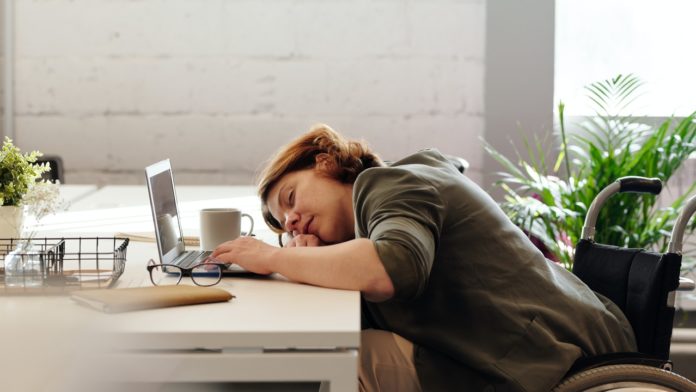For many university students, an unexpected upside to attending classes from home during the COVID-19 pandemic has been the time saved commuting to and from school. Long commute times have been linked to sleep deprivation for students across North America — yet rather than using this extra time to get more sleep, a new study from Simon Fraser University has found that students taking online classes have worse sleeping habits now than ever before.
The study, which compared students’ sleeping habits before and during the pandemic, was published in PLOS ONE.
If students had more free time, would they spend it sleeping?
“There is a widespread belief among sleep researchers that many people — especially young adults — regularly obtain insufficient sleep due to work, school, and social activities,” said Ralph Mistlberger, a professor of psychology at SFU’s Circadian Rhythms and Sleep Lab and co-author on the study, in a press release.
“The move toward remote work and school during COVID-19 has provided a novel opportunity to test this belief.”
To do this, Mistlberger and his colleagues gathered sleep data from students enrolled in a 2020 summer session course at SFU. The course itself was focused on sleep and biological rhythms, and similar data had been collected in pre-pandemic iterations of the course as well.
Students in the course were asked to maintain a sleep diary, and answer various sleep-related questionnaires, over the course of several weeks. They also tracked the amount of time they spent on activities such as classes, jobs, or social events.
A subset of students tracked their sleeping habits through the use of smartphone-based sleep-tracking apps linked to Fitbit smart watches.
Before analyzing the full dataset, the researchers compared the self-reported sleep logs to the smartphone-based sleep data to determine how accurate the self-reported data really were. They found a close match between the two methods of tracking students’ sleeping habits, indicating that students typically do have a strong awareness of their sleep habits even without the use of sleep-tracking software.
Following this, the team compared the sleep habits of students who attended university online in 2020 to those who had attended university in-person in previous years.
They found that students in the 2020 session tended to go to bed 30 minutes later, and sleep less efficiently, than previous students. This is despite the fact that the 2020 students saved time by not commuting to school and had 44% fewer working days than students in previous sessions.
The pandemic has taken a toll on our sleep health
The researchers suspect that their findings may have more to do with the pandemic itself than the fact that classes are being held online. For example, students may be going outside less than usual while quarantining and reducing their exposure to natural light as a result.
“Not surprisingly, there is […] a marked reduction in natural light exposure, especially early in the day,” Mistlberger explained.
“My advice […] is to try to get outside and be active early in the day because the morning light helps stabilize your circadian sleep-wake cycle.”
Stress and anxiety related to the COVID-19 pandemic have also likely had a big impact on students’ health and well-being. Numerous studies have shown that stress can make it harder to fall and stay asleep, which in turn may exacerbate stress levels even further.
For students who have been personally affected by the COVID-19 pandemic, stress-related insomnia may be of particular concern.
Sleep hygiene is a crucial aspect of our well-being
Sleep is vital to our brain health, and is especially important for teens and young adults. These findings could help students become more aware of their own sleep habits during the pandemic, and point to solutions that could help them get a better night’s rest.
“Individuals complying with mandates to social-distance or quarantine may […] benefit from public health advice on sleep hygiene,” the authors said.
Staying physically active, maintaining a regular sleep routine, and avoiding caffeine or alcohol before bed are just a few ways that you can help your body wind down and finally catch some much-needed Zs.








































